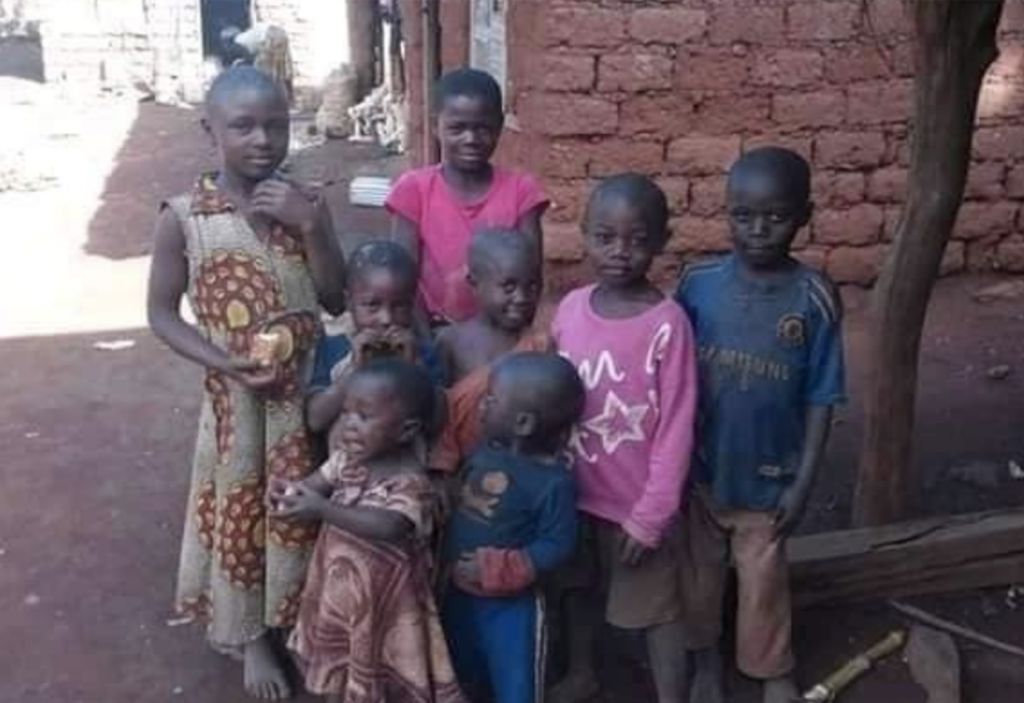For Immediate Release
Ngarbuh Massacre: Despite Governments’ Acceptance of Culpability, an Independent International Investigation Remains Necessary
May 10, 2020-(London | Berlin | Washington D.C) – On 14 February 2020, the Cameroon government’s military forces were alleged to have massacred 23 persons in the village of Ngarbuh, Donga Mantung in the Southern Cameroons, including 14 children and pregnant women.[1]The government in its traditional fashion initially denied responsibility and in turn, accused the Southern Cameroons self-defence groups (dubbed “Amba Boysâ€), which it has repeatedly tagged as “separatists†and “terroristsâ€. The government later backtracked after heavy international pressure and indicated to open an investigation into the allegations. Two months thereafter, The Minister of State, Secretary-General at the Presidency, Mr Ferdinand Ngoh Ngoh issued a Communiqué on 21 April 2020 announcing the findings of a Joint Commission of Inquiry into the massacre.
Joint Commission of Inquiry – The Incongruities
While the government of Cameroon’s Communiqué of 21 April has been welcomed as “an important first step in establishing the truth around the killings of civilians by government forcesâ€,[2]numerous incongruities surrounding the said investigations make the findings inadequate for a number of reasons:
- The Communiqué indicates that a Joint Commission of Inquiry was set up on 17 February 2020 with the task; 1) to shed light on the circumstances under which the tragic events occurred, and 2) to establish the responsibilities of the various actors. Normally, for purposes of transparency, a commission of inquiry of that nature would be made public in terms of its composition, terms of reference, time frames and possibly budget and logistics for carrying out the investigation. There is no indication that these important details were made available to the public.
- Contrary to the reference of the investigation team as a “Joint Commission of Inquiryâ€, in terms of composition, the government’s Communiqué states that “the Commission of Inquiry was composed of Army and National Gendarmerie Officers†established “[u]nder the authority of the Secretary of State at the Ministry of Defence in charge of the National Gendarmerie and chaired by a military judicial and legal officerâ€. By all indications, the Commission was composed primarily of the military, did not involve any independent entities like religious leaders, civil society organisations or even local community leaders and therefore, cannot be said to be a joint commission. In effect, this was the military investigating itself.
- The Communiqué states that the Commission only exceptionally resorted to the services of some six personalities, which it describes as observers thus, without any conclusive opinion relating to the findings of the investigation. Referring to the six personalities as observers means they did not form an integral part of the investigations. To say that the Commission exceptionally … resorted to the services of the said personalities, implies that it was not obligated to do so and probably only did at the discretion and on the instruction of the Head of State.
- The following paragraph confirms that the United Nations was only requested to participate in the Commission’s work on instruction from the Head of State. Even so, the United Nations actually did not take part in the investigations but only “promised to provide technical support that the Cameroonian Justice, which is now in charge of the matter, could use as and when necessaryâ€. On this basis, the Commission’s findings, even though it acknowledges the responsibility of the military for committing the massacre, is neither independent nor unbiased. It cannot be denied that many crucial facts relating to the massacre could have been concealed.
- The 6-page Communiqué only summarily indicates that the Commission “conducted field visits to Bamenda, Kumbo, Nkambe, Ntumbaw and Ngarbuh where it recorded various findings, collected and analyzed clues, and gathered evidence which enabled it to reconstruct the scene of this tragic eventâ€. While process is important in determining outcome, there is no clear indication on how the investigations were conducted to arrive at the conclusions elaborated in the communiqué issued by the Minister of State, Secretary-General at the Presidency, and therefore, cannot be trusted to be accurate.
Even if it is to be accepted that the Government of Cameroon has the authority to communicate the results of the investigation and the necessary measures to ensure that justice is done and the perpetrators are punished; it is normal practice for purposes of transparency in any democratic society, which Cameroon claims to be, to allow the said Joint Commission of Inquiry to present its findings in a public forum convened for that purpose and attended by the media and the general public where questions could be asked and genuine answers obtained. There is no justification why theCommission’s findings were presented by the government in the form of a communiqué rather than the Commission itself presenting the full report with all the details on how the investigations were conducted and possibly with recommendations on the punitive and remedial measures to be taken.
Besides the incongruities outlined above, the sentiments expressed in the communiqué also do not convey a genuine intention to “search for ways and means of peacefully resolving the crisis in the North West and South West Regions†as the government claims to want to do. Before the Ngarbuh massacre, several other and even more gruesome massacres have been committed in places like in Mauotu-Muyuka on 14 July 2019 where over 20 persons were killed; in Kurt village, Mbaw on 9 June 2019 where 8 persons were killed; in Ekona on 10 June 2019 where 8 persons were killed; in Babanki on 15 June 2019 where 60 persons are reported to have been killed; in Menka, Pinyin on 23 May 2018 where over 25 young persons were killed; in Mbot/Mayo-Binka on 11/12 November 2018 where a dozen youths were killed; in Bali on 22 November 2018 where 19 deaths were registered and in Tiben village, Batibo on 12 July 2018 where an entire family of nine was slaughtered.
These are just some of the massacres that the Cameroon government’s military has committed in the Southern Cameroons, which the government has never demonstrated the resolve to investigate probably because, these ones did not attract the same kind of attention and condemnation from the international community as did the Ngarbuh incidence. More so, even after the government’s communiqué was issued on 21 April 2020, more and more killings have continued to take place in the Southern Cameroons, the most recent being the massacre committed in Bafut on 1 May 2020.
Conclusion
Human Rights Watch Director for Central Africa, Lewis Mudgehas noted that the “[…] report should not be a stand-alone action. A more in-depth investigation is needed to establish a clear timeline of events and to identify all those responsible, including anyone further up the chain of command, for the purposes of prosecuting themâ€.[1]If the government of Cameroon is committed to collaborating with third party stakeholders in protecting and promoting human rights as indicated in the Communiqué, it needs to begin by demonstrating good faith in allowing an independent investigation, which has been called for by several international organizations, including the United Nations among many others
Only an independent investigation would be able to establish the facts relating to the four yearlong conflict, including especially the Ngarbuh massacre, which the government has acknowledged responsibility for, and also the many other massacres committed previously, as well as the continuous senseless killings and other heinous crimes against humanity that have systematically been inflicted on the civilian population in the Southern Cameroons since 2017.
Following repeated instances where the government of Cameroon has refused international human rights organisations entry into the country, its reticence in publishing the full report of the Commission of Inquiry, confirms that it cannot honestly conduct a free and unbiased investigation on the broad range of crimes against humanity that its military forces are accused of committing in the Southern
Cameroons. Only an independent body like the United Nations, the International Criminal Court or any other international organisation is able to establish the facts on the excesses of the Cameroon government, its military forces and the various armed groups.
###
[1] UN News “Guterres ‘deeply concerned’ over deadly assault in north-west Cameroon†UN News, 18 February 2020, available at:https://news.un.org/en/story/2020/02/1057571;Al Jazeera “UN: 14 children among at least 22 dead in Cameroon massacre†Al Jazeera, available at: https://www.aljazeera.com/news/2020/02/14-children-22-dead-cameroon-massacre-200217051927689.html(accessed on 20 February 2020);CNN “14 children among dozens killed in Cameroon attack, UN Says†CNN Yaoundé, 17 February 2020 available at: https://www.cnn.com/2020/02/17/africa/cameroon-village-attack-intl/index.html(accessed on 18 February 2020); BBC News “Children among 22 killed in attack on Cameroon village†BBC News, 17 February 2020 available at: https://www.bbc.com/news/world-africa-51526358?intlink_from_url=https://www.bbc.co.uk/news/topics/clm1wxp5p5jt/cameroon&link_location=live-reporting-story(accessed on 20 February 2020);Daily Nation “14 children among up to 22 dead in Cameroon massacre: UN†Daily Nation, 17 February 2020 available at: https://www.nation.co.ke/news/africa(accessed on 18 February 2020); France 24 “Children make up more than half of dead in Cameroon village massacre†France 24, 17 February 2020, available at: https://www.france24.com/en/20200217-at-least-22-killed-in-attack-on-village-in-northwest-cameroon(accessed on 20 February 2020).
[2] Human Rights Watch “Cameroon: Massacre findings made public†Human Rights Watch, 24 April 2020available at:https://www.hrw.org/news/2020/04/24/cameroon-massacre-findings-made-public(accessed on 2 May 2020).
[3]Human Rights Watch, note 2 above.


